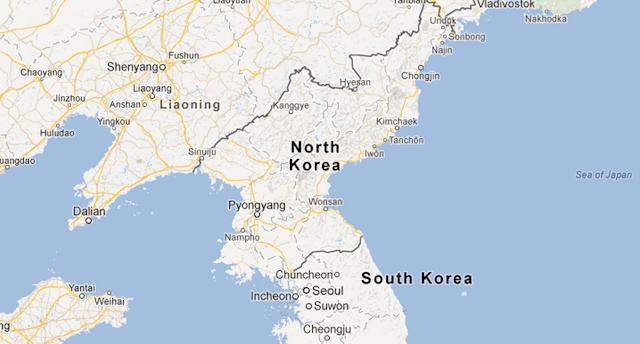News that Google has successfully constructed and published maps of North Korea is stirring the imagination of social media aficionados around the world, but may also stir international political tensions.
Google Maps’ latest creation – simply type North Korea into the relevant search bar – is a significant social media development because it was produced not by expert map makers or a spy organisation, but by “citizen cartographers” who worked for several years, using the company’s Map Maker software, to share and fact-check geographical information obtained from satellite images available from Google Earth.
It is an example of “crowdsourcing” and, while Google admits the map may not be 100% accurate, it is further evidence of the “wisdom of the crowd” – a somewhat controversial notion that challenges modernist notions of genius, and of “experts” as the primary and most efficacious creators of human knowledge.
Crowdsourcing
Google’s map of North Korea is not the first example of crowdsourcing on a global scale or for accomplishing quite technical tasks. In the early 2000s, NASA – via its Clickworkers site – recruited amateur astronomers to help it identify and categorise craters on Mars from thousands of photographs taken by the Viking orbiters.
Between 2000 and 2001, more than 80,000 people identified around two million craters for scientific measurement and study and classified the relative age of another 300,000 – a task that would have taken scientists years, if not decades, to complete.
Furthermore, and significantly, American Scientist reported that this collaborative public effort was found to be almost as accurate as work done by expert planetary geologists.
As “the free encyclopedia that anyone can edit”, Wikipedia stands as the exemplar of crowdsourcing, with more than 24 million articles available for free, versus 120,000 articles in the comprehensive Encyclopaedia Britannica sold by subscription, and found to be almost as accurate as its expensive, expert-produced competitor in a study by the scientific journal Nature.
Collective intelligence
The concept of crowdsourcing is being closely watched by businesses, governments, scholars, journalists and publishers around the world, because members of the public working for free can help design products and provide services for much less cost and more quickly than traditional production and service delivery processes.
Collaboration and crowdsourcing, drawing on what sociologist Pierre Lévy called “collective intelligence”, challenges the long-established notion of “gatekeepers” who act as intermediaries in media and other production processes to filter content and correct inaccuracies and errors. Many see professional intermediaries as essential to avoid the distribution of misinformation and poor quality products and services.
But the Google map of North Korea further demonstrates that Web 2.0 online environments can operate as what American media scholar Henry Jenkins called a “self-correcting adhocracy” – a term for self-organising groups first used by Cory Doctorow in his science-fiction novel Down and Out in the Magic Kingdom.
Open-access publishing researcher Gunther Eysenbach explains that collaborative Web 2.0 sites such as wikis, social media and social networks maintain standards of accuracy through the activities of “apomediaries”, a term derived from the Latin prefix “apo” which means “stand by” or “alongside”, rather than “in” a process, as occurs with “intermediaries”.
Wikipedia, the Mars Clickworkers project, Google’s map of North Korea and many other social media sites achieve a surprising-to-some level of accuracy and quality because of volunteer “apomediaries” who question, correct, add to, qualify and confirm information online.
Myths and tensions
The concept of “apomediaries” as an alternative or complement to professional intermediaries also challenges another myth perpetrated by marketers and some politicians that “the public” is a largely ignorant amorphous mass, often referred to as “punters,” or other dismissive terms.
In fact, the Technorati 2011 State of the Blogosphere report shows that social media users are mostly well-educated and include many scientists, academics, medical practitioners, engineers, lawyers, and so on. Crowdsourcing can access a vast resource of human talent and knowledge.

However, while Google’s latest initiative may help South Korean families locate relatives and inspire internet users worldwide, it is also likely to escalate international political tensions.
As The Los Angeles Times has reported, the maps can help explore the growth of black markets, track the construction of new power plants and other facilities in North Korea (including nuclear reactors) and identify prison camps.
The Sydney Morning Herald openly reported that the largest North Korean gulag is Camp 22 near at Hoeryong near the northeast border with China and commented that “as many as 200,000 people are estimated to be detained in the North’s vast gulag system”.
Nevertheless, and possibly even because of the tensions and excitement generated by Google’s latest offering, we now have a further demonstration of the influence and change effected by social media.

